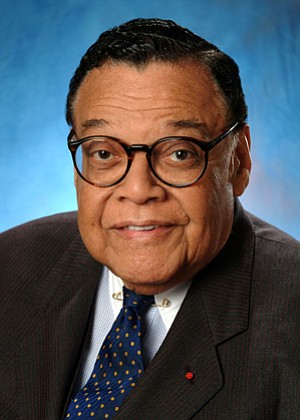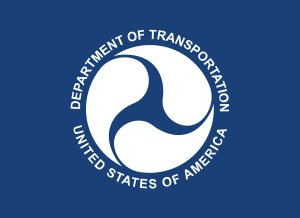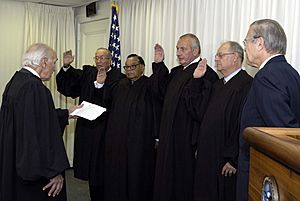William Thaddeus Coleman Jr. facts for kids
Quick facts for kids
Bill Coleman
|
|
|---|---|
 |
|
| Judge of the United States Court of Military Commission Review | |
| In office September 21, 2004 – December 17, 2009 |
|
| Appointed by | George W. Bush |
| Preceded by | Position established |
| Succeeded by | Scott Silliman |
| 4th United States Secretary of Transportation | |
| In office March 7, 1975 – January 20, 1977 |
|
| President | Gerald Ford |
| Preceded by | Claude Brinegar |
| Succeeded by | Brock Adams |
| Personal details | |
| Born | July 7, 1920 Philadelphia, Pennsylvania, U.S. |
| Died | March 31, 2017 (aged 96) Alexandria, Virginia, U.S. |
| Political party | Republican |
| Spouse | Lovida Hardin |
| Children | 3 (including William, Hardin) |
| Education | University of Pennsylvania (BA) Harvard University (LLB) |
| Military service | |
| Allegiance | |
| Branch/service | |
| Unit | United States Army Air Corps |
| Battles/wars | World War II |
William Thaddeus Coleman Jr. (born July 7, 1920 – died March 31, 2017) was an American lawyer and judge. He was the fourth United States Secretary of Transportation, serving from 1975 to 1977. Coleman was also the second African American to be part of the U.S. Cabinet. As a lawyer, he played a big part in important civil rights cases. When he passed away, Coleman was the oldest living former Cabinet member.
Contents
Early Life and Education
Coleman was born in Germantown, Philadelphia, Pennsylvania. His mother's family had many Episcopal ministers, including one who helped people escape slavery through the Underground Railroad. Famous writers like W.E.B. DuBois and Langston Hughes sometimes visited his family's home for dinner.
Coleman was one of only seven Black students at Germantown High School. He faced unfair treatment there. Once, he was suspended for speaking up to a teacher who made a rude comment about his future. When he tried to join the swim team, he was suspended again. The team even broke up and reformed after he graduated to avoid letting him join. Despite this, his swim coach wrote him a strong recommendation letter.
He was accepted into the University of Pennsylvania, where he studied political science and economics. He graduated in 1941 with very high honors (called summa cum laude). He was also chosen for important academic honor societies like Phi Beta Kappa Society and Pi Gamma Mu. Coleman was also a member of the Alpha Phi Alpha fraternity.
Coleman then went to Harvard Law School. In 1943, he left to join the U.S. Army Air Forces during World War II. He wanted to join the Tuskegee Airmen, a famous group of Black military pilots, but he wasn't able to. Instead, he spent the war defending people in military trials (called courts-martial).
After the war, Coleman returned to Harvard Law. He became one of the first Black staff members on the Harvard Law Review, a student-run legal journal. He graduated in 1946 at the top of his class with high honors (called magna cum laude).
Career Highlights
Coleman started his legal career in 1947. He worked as a law clerk for a judge on the U.S. Court of Appeals and then for U.S. Supreme Court Justice Felix Frankfurter. He was the first African American to ever work as a Supreme Court law clerk.
In 1949, Coleman joined a law firm in New York. Thurgood Marshall, who was then the main lawyer for the NAACP, asked Coleman to help with a very important case called Brown v. Board of Education (1954). Coleman helped write the legal arguments for this case, which led the Supreme Court to rule that separating students by race in public schools was against the law.
Coleman was a key member of the NAACP Legal Defense and Educational Fund, which works to achieve racial justice through legal means. He also advised President Dwight D. Eisenhower on government employment and worked with the U.S. Arms Control and Disarmament Agency.
In 1964, Coleman was an assistant lawyer for the President's Commission on the Assassination of President Kennedy, also known as the Warren Commission. This group investigated the killing of President John F. Kennedy. During this investigation, Coleman even met with Fidel Castro, who was the leader of Cuba at the time. Castro denied any involvement in the assassination during their three-hour talk.
Coleman also helped win another Supreme Court case in 1964, McLaughlin v. Florida. This case made it illegal for states to have laws that stopped interracial couples from living together. He also served on the U.S. team for the United Nations General Assembly in 1969. Before becoming a Cabinet member, he was a senior partner at a law firm.
Serving in the Cabinet

On March 7, 1975, President Gerald Ford chose Coleman to be the fourth United States Secretary of Transportation. In this role, Coleman led the United States Department of Transportation.
During his time as Secretary, a new car testing facility opened in Ohio. His department also created a new office to make sure pipelines and dangerous materials were transported safely. In 1976, Coleman allowed the supersonic Concorde jet to start test flights in the U.S. Even when some groups tried to ban the jet, the Supreme Court supported Coleman's decision. He also decided not to force car companies to install airbags right away, instead allowing a two-year test period. Coleman's time as Secretary ended in January 1977, after Jimmy Carter won the 1976 election.
After the Cabinet
After leaving the Department of Transportation, Coleman continued his legal career. He argued 19 cases before the Supreme Court. One notable case was Bob Jones University v. United States (1983), where he successfully argued that groups that openly discriminated should not get certain tax breaks.
In 1993, he was elected to the American Academy of Arts and Sciences. On September 29, 1995, President Bill Clinton gave Coleman the Presidential Medal of Freedom. This is one of the highest awards a civilian can receive in the U.S. After a plane crash in 1996 (TWA Flight 800), he served on a special commission to improve airline and airport security.
In September 2004, President George W. Bush appointed Coleman to be a judge on the United States Court of Military Commission Review. In 2006, he received the Golden Plate Award from the American Academy of Achievement. In December 2006, he was an honorary pallbearer at the state funeral of President Gerald Ford.
Personal Life
In 1945, William Coleman Jr. married Lovida Mae Hardin. They had three children: Lovida H. Coleman, Jr., William Thaddeus Coleman III, and Hardin Coleman.
William Thaddeus Coleman Jr. passed away on March 31, 2017, at his home in Alexandria, Virginia, at the age of 96. He died from complications related to Alzheimer's disease.
See also
 In Spanish: William Thaddeus Coleman Jr. para niños
In Spanish: William Thaddeus Coleman Jr. para niños
- List of African-American United States Cabinet members
- List of law clerks of the Supreme Court of the United States (Seat 2)
Images for kids
 | James Van Der Zee |
 | Alma Thomas |
 | Ellis Wilson |
 | Margaret Taylor-Burroughs |




